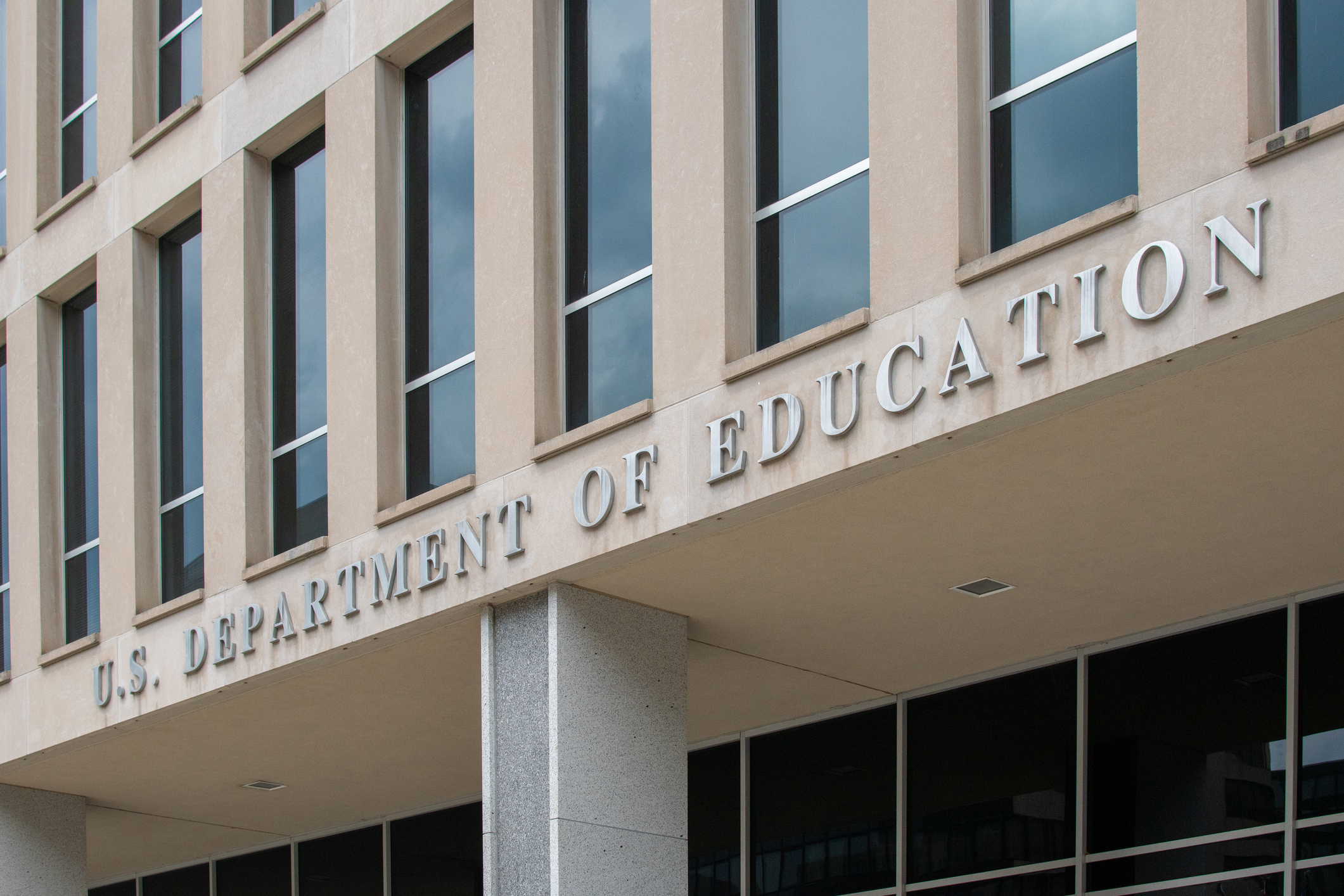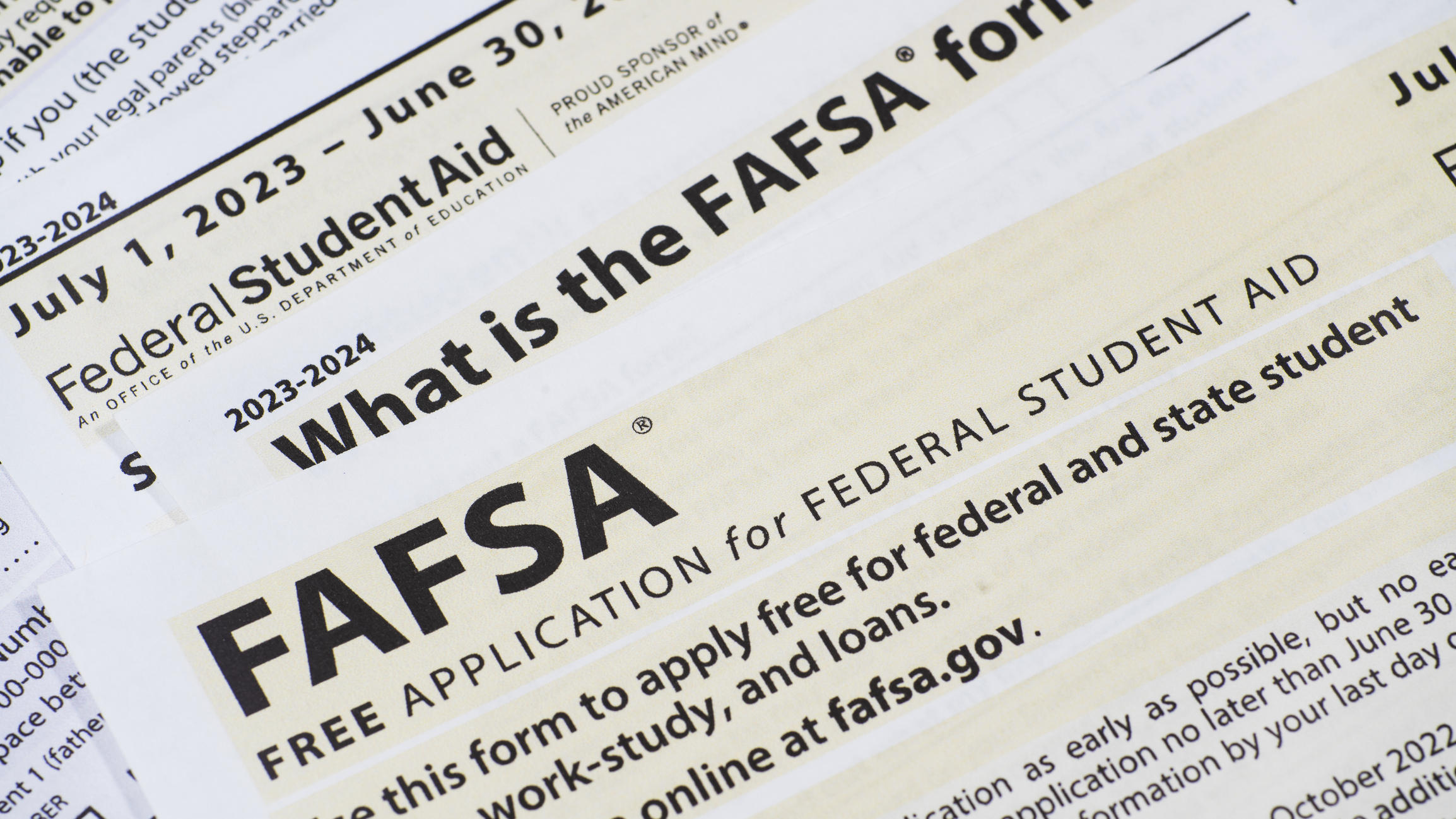Since the presidential inauguration, there have been many changes announced concerning federal departments. Some of these changes have already happened, while others are still in discussion. Some of the potential changes involve the U.S. Department of Education and/or policies that impact higher education. Students and families have numerous questions about what the impact of these changes might be, and what steps to take going forward. Let’s break down the facts vs. the disinformation, and then discuss what you can do while all of this plays out.
What Executive Orders have been issued that impact higher education?

Since his inauguration, President Trump has issued numerous executive orders that impact higher education. Here is a brief summary of the executive orders that have been issued thus far, pulled from the American Council on Education:
-
Executive Orders Impacting Diversity, Equity and Inclusion (DEI) Programs and Policies:
-
-
Ending Radical and Wasteful Government DEI Programs and Preferencing, issued 01/20/25:
-
Requires that the Director of the Office of Management and Budget end all discriminatory programs, including “diversity, equity, inclusion, and accessibility” (DEIA) mandates, policies, programs, preferences, and activities in the federal government, including those related to “environmental justice.”
Win more scholarships with less effort
Simplify and focus your application process with the one-stop platform for vetted scholarships.
Check for scholarships-
-
Initial Rescissions of Harmful Executive Orders and Actions, issued 01/20/25:
-
Rescinds numerous Biden Administration executive orders, including orders related to increasing equity and opportunity for underrepresented students, Tribal Colleges and Universities, and Hispanic-Serving Institutions. Also mentioned in the Sustainability section below.
-
-
Ending Illegal Discrimination and Restoring Merit-Based Opportunity executive order, issued 01/21/25:
-
Directs all federal agencies to end diversity, equity and inclusion preferences, mandates, policies, programs, and activities. It requires that guidance be developed and provided to state and local educational agencies and higher education institutions that receive federal funds or that participate in federal student loan programs.
-
Executive Orders Impacting Immigration Programs and Policies:
-
-
Protecting the United States from Foreign Terrorists and Other National Security and Public Safety Threats, issued 01/20/25:
-
Increases vetting and screening for individuals seeking admission to the United States and already in the country. Further enhances vetting for individuals from countries with identified security risks and to monitor individuals already in the United States to ensure they “do not bear hostile attitudes toward its citizens, culture, government, institutions, or founding principles, and do not advocate for, aid, or support designated foreign terrorists and other threats to our national security.”
-
-
America First Policy Directive to the Secretary of State, issued 01/20/25:
-
Directs the Secretary of State to “issue guidance bringing the Department of State’s policies, programs, personnel, and operations in line with an America First foreign policy, which puts America and its interests first.” May impact programs funded by the State Department, including educational exchanges and international partnerships.
-
-
Protecting the American People Against Invasion, issued 01/20/25:
-
Directs enforcement of deportation orders, and requires the Secretary of Homeland Security to expedite the removal of individuals not lawfully admitted or paroled into the country. Establishes Federal Homeland Security Task Forces (HSTFs), limits funding to sanctuary jurisdictions, and restricts public benefits for undocumented individuals.
-
Executive Orders Impacting Title IX Programs and Policies:
-
-
Defending Women from Gender Ideology Extremism and Restoring Biological Truth to the Federal Government, issued 01/20/25:
-
Recognizes two sexes, male and female, and directs agencies to use “sex” instead of “gender” in federal policies and documents. Directs the U.S. Education Department to rescind a 2021 memo that interpreted Title IX protections to cover sexual orientation and gender identity, among several other pieces of guidance rescinded by this executive order.
-
Executive Orders Impacting Sustainability Programs and Policies:
-
-
Initial Rescissions of Harmful Executive Orders and Actions (01/20/25):
-
The order revokes several Biden Administration Executive Orders related to higher education’s role in combatting climate change. Ends the White House Office of Domestic Climate Policy, the Justice40 Initiative, and other HBCU- and MSI-related environmental justice programs.
What will happen to the programs and policies that are impacted by these executive orders?

The Trump Administration expects that these executive orders will be followed; however, various groups and organizations have filed lawsuits to impede these executive orders – either to slow them down, or stop them entirely. But it is not yet known whether or not any of these lawsuits will be successful in doing so.
I’ve heard that the Trump Administration plans to close the U.S. Department of Education? Is that possible? Will it actually happen?

During his 2024 Presidential Campaign, Donald Trump stated that early in his administration, he would be “closing up the Department of Education in Washington, D.C., and sending all education and education work and needs back to the states.”
Since his inauguration, the President has moved forward with numerous executive orders (detailed above) that impact policies and programs of the U.S. Department of Education; however, so far, he has not yet issued an executive order to close the U.S. Department of Education. That said, it is expected that he will attempt to do so. Currently, Trump’s nominee for Education Secretary, Linda McMahon, is in the process of going through her confirmation hearing in the Senate.
According to the Associated Press, President Trump stated that once McMahon is confirmed, he wants her to “put herself out of a job.” It is widely believed that Congress will need to take action to completely abolish the Department of Education; however, through his executive orders, President Trump is chipping away at many of the policies and programs he most disagrees with. During her confirmation hearing, McMahon said that she would strive for “a better functioning Department of Education.” She also indicated that some programs currently administered by the Department of Education might be more efficient if handled by other federal agencies.
What will happen to federal financial aid? Will I still need to complete the FAFSA? What will happen to federal grants? And will there still be federal student loans?

Unfortunately, this is an area that is a bit murky. The primary role of the U.S. Department of Education is financial. Every year, billions of federal dollars are distributed to colleges and schools. The Department also manages the federal student loan portfolio. As of right now, federal student aid programs, including grants and loans are still in place.
On January 27, 2025, the Trump Administration issued a memo that suspended spending across many sectors of the federal government. Initially, there was concern that this might freeze student aid funding as well; however, the following day, the Education Department provided clarification, indicating that this freeze will not impact funds provided to individual students, including Federal Pell Grants and Direct Loans. Additionally, according to the Washington Post, student loan servicers will be able to continue operations, so students who are currently in the process of repaying their loans can continue to do so.
As such, as of right now, there are no changes to the federal student aid program; however, students and parents need to be aware that changes will likely be forthcoming. What those changes might entail is what is unclear, and may not be clear for awhile.
All of this is really overwhelming and confusing, and I’m really getting scared.

Students, parents and educators need to stay informed, and should ensure that they are following only reputable news organizations. Understanding the facts and being able to separate fact from disinformation is one of the greatest challenges of our time. Always double-check sources of information, and be sure that you only share news and information that you is confirmed as true from credible news organizations.
All of these proposed changes will be wending their way through the courts, which will take time. In some cases, the presiding judge will put a temporary hold on an executive order and/or on legislation while these cases go through the court system, and in other cases, the executive order or legislation will be allowed to begin. Each situation is different, and we all need to be patient while decisions are made and steps are taken. So take a breath and try to focus on what you can control vs. what is out of your hands.
If you are feeling scared or overwhelmed, talk to someone who you trust, and who would be a good listener – that might be a parent/guardian, a teacher, a school counselor, your financial aid advisor, your therapist, or a friend.
If you are undocumented, you may want to talk with someone from an advocacy agency or a legal representative who can advise you of your rights and your options. Many colleges have support services for undocumented students. If your school has indicated that undocumented students are welcomed and supported, despite recent actions by the Trump Administration, you may want to consult with someone from your college’s advocacy group. But if you are uncertain if your school will still welcome and support undocumented students, you may want to reach out to someone outside of your college.
I really need financial assistance to go to college, and I’m worried that federal financial aid will go away. What can I do?

The most important thing to do is to not get overly stressed about whether or not federal student aid will continue to exist – the more stressed and anxious we are, the more paralyzed we feel. Instead, use your fear and anxiety to motivate you into action. And even though students can and should make their voices heard through their vote and advocacy, the election was last year – not this year. So what can you do now? Take control of what you can, and let go of what is out of your control.
What does this look like? It means making decisions today that will enable you to create a more affordable path to college, regardless of the status of federal student aid.
-
Submit the FAFSA.
Even though we don’t know exactly what will happen with federal student aid, submit the FAFSA anyway. Hopefully, federal grants and loans will still happen.
-
Prioritize applying for scholarships.
Scholarships are offered by businesses, organizations, and the universities themselves – they are not dependent on federal dollars. So apply for as many scholarships as you can! The ScholarshipOwl platform is a great place to start – more students win scholarships on ScholarshipOwl than on any other scholarship platform!
-
Work part-time during the school year, and full-time during summer breaks.
If you aren’t working now, get a job immediately. And keep working all the way until you graduate college. Save the money you earn and apply it towards your education. You might be surprised to discover that you can earn MORE than what you would receive in a federal Pell Grant!
-
Start at a community college.
Instead of going directly to a university after high school, complete your first two years at a community college, saving thousands on tuition AND thousands on room and board. During those two years, work part-time during the school year and full-time during the summer, and save all of the money you’ve earned to cover your last two years of college at a university!
-
Take online classes.
If you are open to attending college online for one or more years of college, you can save the cost of living on campus and take classes from the comfort of your home. This can also be really beneficial if you want to work a lot of hours and/or have family responsibilities. TIP: Community college online classes are the least expensive AND they are more likely to be transferrable to a university vs attending a “fully online school.” If you do plan to attend an online-only school, make sure you choose one that is regionally-accredited to increase the likelihood that your credits will transfer.
-
Earn college credits while still in high school so that you can graduate earlier and save money.
If you are in high school, there are a number of ways you can earn college credits:
-
-
- AP & CLEP Exams: For each AP or CLEP exam you pass, you can earn college credits! You can enroll in AP classes in high school and then take the related AP exams, but you actually don’t even need to take the classes. You can self-study for both AP and CLEP exams using materials online or in your local library or bookstore and then take the exams.
- ROP Classes: If your high school offers ROP classes, find out which ones will award you college credits, and then enroll in those classes.
- Dual Enrollment / Concurrent Enrollment: Consider enrolling in community college classes while still in high school. Your high school district might even pick up the cost of your tuition for those classes. Some students are able to actually earn their associate degree while they are in high school!
-
Added bonus: If you graduate earlier, you’ll not only save on tuition and housing; you’ll also start your career earlier, enabling you to earn a nice salary in your field while your former peers are still working towards completing their degree!
Bottom Line: Don’t wait for politics to play out – take control and carve your own affordable path to college.
- Use your fear and stress to motivate you into taking the steps outlined above.
- Given the political uncertainty, focus on attending a lower-cost college vs. a more expensive school. You can always transfer later on.
- Apply for scholarships and jobs, NOT loans. This is always the best advice to ensure you won’t graduate with the burden of student debt.
There IS an affordable path to college – for further information, and to start applying for scholarships today, visit www.scholarshipowl.com!



